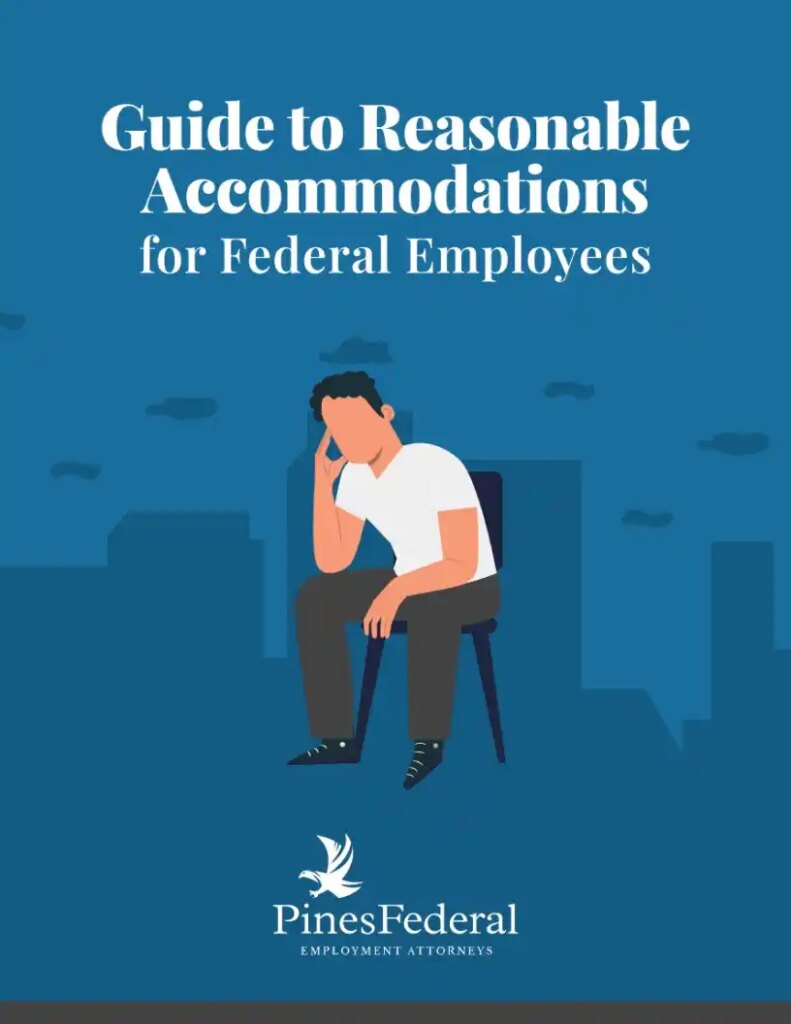
As a federal employee with attention deficit hyperactivity disorder (ADHD), you probably face unique challenges at work.
You may find it difficult to focus, prioritize tasks, or manage time effectively.
Perhaps sometimes you forget what your manager asked you to do or find yourself making lots of mistakes.
However, our EEOC reasonable accommodations lawyers have good news: the law is on your side. As you’ll discover in this article, you have the right to request reasonable accommodations to help you perform your job effectively.
We’ll also unpack your rights under the Americans with Disabilities Act (ADA), the types of accommodations available for ADHD sufferers, and when you should seek legal advice.
Please don’t hesitate to call (800) 801-0598 or reach us online to learn how we can help you.
Is ADHD a Disability Under the ADA?
It depends. The Americans with Disabilities Act is the cornerstone of the federal government’s legislative efforts to protect people with disabilities.
It simultaneously prohibits discrimination against employees and forces employers to provide reasonable accommodations to qualified individuals with a disability. The ADA applies to federal employees under the Rehabilitation Act of 1973.
Thankfully for employees, the ADA has a very wide definition of disability. A disability is any physical or mental impairment that substantially limits one or more major life activities.
Life activities include things like:
- Thinking,
- Sleeping,
- Working,
- Maintaining relationships with others, and
- Talking.
Assuming it significantly restricts your ability to perform essential job functions or participate in major life activities, your ADHD is probably a disability under the ADA.
Yet, you will need to meet one more requirement to receive reasonable accommodation under the ADA. Specifically, you need to be qualified and capable of performing the essential functions of your job, whether with or without reasonable accommodations.
If you meet these requirements, then the Americans with Disabilities Act and your ADHD entitle you to protection from discrimination. In addition, you have the right to request reasonable accommodations from your employer.
ADHD Accommodations at Work
There is no one-size-fits-all solution for ADHD accommodations, as each person’s needs and job requirements are unique.
However, some accommodations for employees with ADHD are more common than others:
- Flexible scheduling or telework. Employees with flexible work hours or remote work can often manage their ADHD symptoms better and be more productive.
- Modifications to the work environment. Allowing employees to use noise-canceling headphones can serve to minimize distractions and improve their focus. A quiet workspace or private office can also accomplish the same goal.
- Task management tools. Providing access to tools like calendars, to-do lists, project management software, or time management apps can help employees organize tasks, set priorities, and track progress.
- Frequent check-ins or feedback. Regular meetings with supervisors or colleagues can help employees stay on track and address any concerns or issues promptly.
These are just a few of the more common reasonable accommodations we see in ADHD cases. Contact one of our attorneys today to learn about other accommodations.
[DOWNLOAD] Reasonable Accommodations for Federal Employees

When Should I Contact an Attorney?
Some employers will be reasonable and supportive when you request accommodation. Others will drag their feet or retaliate against you. It is vital you contact an attorney if your employer refuses to provide reasonable accommodations.
You should also get in touch with an attorney if you believe your employer is discriminating against you because of your ADHD.
You should consider contacting an attorney if:
- Your federal employer denies your request for accommodations without engaging in an interactive process to determine suitable alternatives;
- You experience harassment, retaliation, or receive discipline because of your ADHD or your request for an accommodation;
- Your employer refuses to respond to your request for accommodation for more than a month; and
- You have questions or concerns about your rights under the ADA or other applicable laws.
When in doubt, it’s better to contact an experienced federal employment attorney. The adage “better safe than sorry” certainly applies when you are in a situation that threatens your career and mental health.
Need to Learn More About ADHD and Reasonable Accommodations for Federal Employees? Let Us Help
Remember, the law grants you the right to request reasonable accommodations to help you perform your job effectively.
Understanding your rights under the ADA and the full range of accommodations available can empower you to advocate for yourself in the workplace.
But if you face unexpected challenges in your quest for reasonable accommodation, it is crucial to seek guidance from an experienced federal reasonable accommodations attorney.
Pines Federal is a firm dedicated to protecting the livelihoods and rights of federal employees. When you consult one of our legal professionals, you will receive the advice of a lawyer who focuses solely on representing federal employees.
As such, you can expect to receive vital insight into how to navigate the legal process and protect your rights as a federal employee. Remember that you are not alone in your struggle with ADHD.
With the proper legal support and ADHD workplace accommodations, you can take your federal career to the next level. Call us today at (800) 801-0598 or fill out our online form to schedule your initial consultation today.